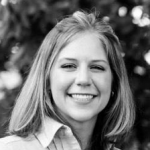Musings from Students of the Pardes Institute of Jewish Studies in Jerusalem
Posted on May 29, 2014 by Andrea Wiese
Here are my parting words from the final community lunch of the year:
 I don’t know if you remember, but at the beginning of the year, we all had meetings with our morning class teachers.
I don’t know if you remember, but at the beginning of the year, we all had meetings with our morning class teachers.
Three years ago, my meeting was with Rav Meir… I’m sure you could imagine. Him smiling, his arms crossed, leaning back, accessing the situation, a Torat Chayim on the table. “Okay, so let’s begin”… I interrupted him.
“Can I ask you a question?”
“Ehh…okay”
“What’s chumash?”
He was shocked…maybe because I really didn’t know, maybe because I had the courage to ask…
He stared at me, he replied, “Well, maybe you should be in alef!”
“No no, I want to be in your class..” And so we went on… and I “passed”… or at least he let me stay in his class.
I have been here for three years and the only thing I would have changed would be to stay even longer. I really would like to talk for a long time about all the people here and amazing staff, but I only have three minutes.
So I’m going to talk about the parsha because I’m hoping that won’t make me cry. At Dean Bernstein’s house, Sarah Pollack spoke beautifully about the sin of the nazir and why the nazir has to bring a sin offering. My humble opinion, to add on to all the mepharshim that she already quoted, is that his sin is that he is removing himself from the community. מקדש can mean to become holy, but it can also mean to separate or to designate. When a women is מקדש/betrothed, it can mean she becomes holy, or that she is designated and is no longer available to other men to be married. It is not a good thing to be separate, and this is his sin.
More than anything, in the past three years, I have learned that a Jew can’t survive without a community. A Jew must be surrounded by other Jews. One of the most important principles I have taken from my learning is that Jewish law is designed to protect the individual by requiring them to be part of a community. We see examples of this in avilut, law of davening like a minyan, kashrut, even in studying Torah.
Pardes is the first time I had ever felt a sense of Jewish community as something vital to my existence. No longer is it just an interest or something that I like. I realized that I simply couldn’t (and didn’t want to) live somewhere without it. It gripped me so tightly, it was a gut feeling.
I have Maya Angelou on my mind, and there is a famous quote this is so true, it has become a cliche.
“People will forget what you said
People will forget what you did
But people will never forget how you made them feel.”
I can remember the first time I went to Michael Hattin’s home. I was very nervous, because it’s Rav Michael Hattin, and he’s a Torah rockstar. (and I am the #1 groupie, for sure!) And he (and his beautiful wife, Rivka) blessed his children, and I sat at the table crying. It was the most beautiful thing I had ever seen. (it was also the first time I had ever seen it.) These moments of “feeling things” that I had never felt before kept happening, at Zvi’s house, Tovah Leah’s house, Dean Bernstein’s house, Yaffa’s house, Meesh’s house, Leah’s house, Levi’s house, Rav Landes’ house, Hayim’s house, Judy and Howard’s house, Alex’s house, Aviva’s house, DLK’s house, Rav Meir’s house. (There are more.) So even though I may not remember everything they have said, or did. I will never forget how they made me feel.
And so now, because I have to go and teach, I will end with a little more inspiration from Maya Angelou:
“When you learn, teach. And when you get, give.” So this is my bracha for us all is that when you learn, teach, and when you get, give.